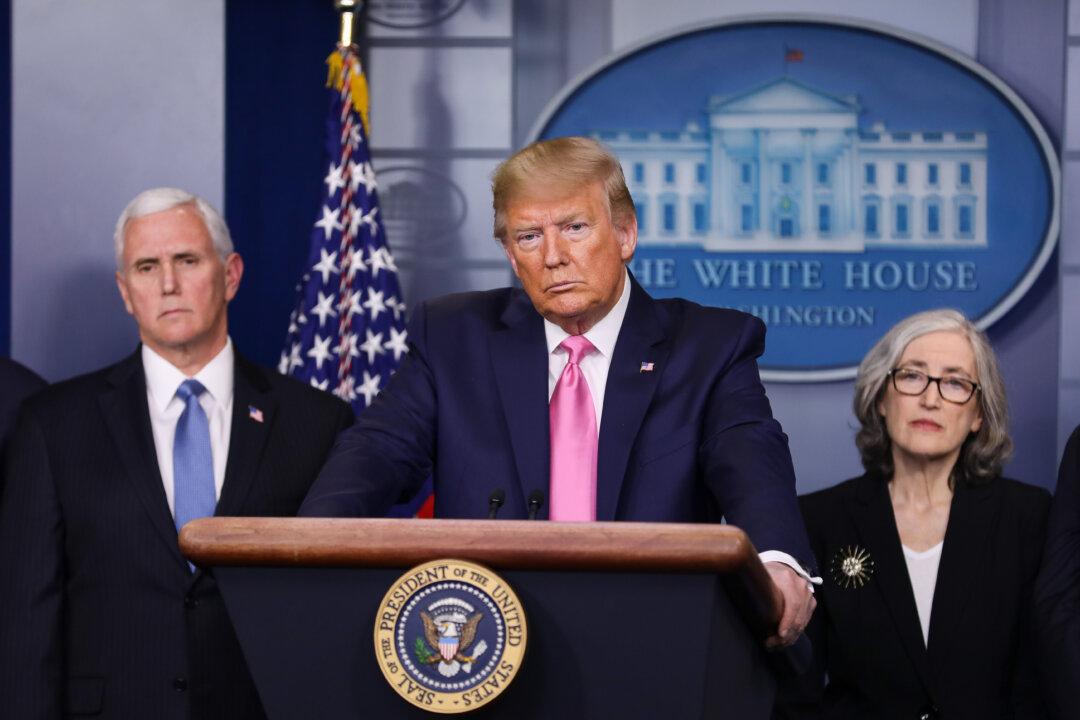After receiving a briefing by government health experts on the status of the coronavirus outbreak, President Donald Trump said that the risk to the American people continues to be very low because of early steps taken by the administration.
Trump made the announcement at the White House on Feb. 26, flanked by administration officials including Vice President Mike Pence, whom the president designated as the point person to lead the whole-of-government effort to protect the United States against the deadly disease.





